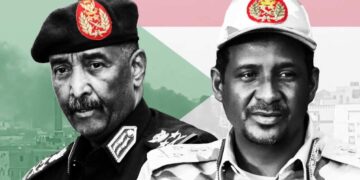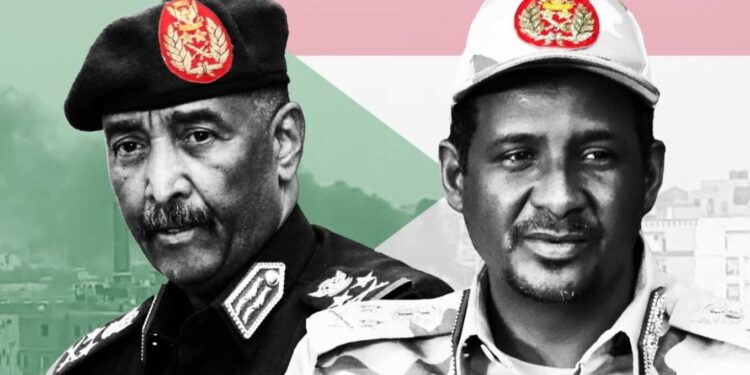By John Ikani
In a fresh bid to quell the nearly seven-month-long strife between Sudan’s feuding factions, the Sudanese army and its adversary, the Rapid Support Force paramilitary, have rekindled peace talks.
The renewed negotiations, currently underway in the Saudi coastal city of Jeddah, feature representatives from the Sudanese army, led by Abdel-Fattah Burhan, and the Rapid Support Force paramilitary, under the command of Mohamed Hamdan Dagalo.
Both Riyadh and Washington are overseeing the mediation efforts, as confirmed in a statement issued by the Kingdom’s foreign ministry on Thursday (Oct. 26).
The participation of the RSF and the army in these talks was confirmed on Wednesday (Oct. 25).
The ongoing conflict, which erupted in mid-April, stems from longstanding tensions between the military and the RSF and has now escalated into open warfare in the capital city, Khartoum, and other regions across this East African nation.
The impact of this protracted conflict has turned urban areas, including the capital Khartoum, into battlefields, exacerbating the existing strain on the nation’s already frail infrastructure.
It’s worth noting that earlier peace negotiations in Jeddah earlier this year collapsed in late June.
Both Washington and Riyadh accused both sides of failing to uphold previously agreed cease-fire agreements. Since April, there have been at least 9 temporary cease-fire deals, all of which regrettably faltered.
The Saudi foreign ministry, in its statement, expressed a glimmer of optimism, hoping that these fresh talks will pave the way for another cease-fire arrangement and a political consensus that can restore much-needed security, stability, and prosperity for the people of Sudan.
According to data from the Armed Conflict Location & Event Data project, which monitors Sudan’s ongoing conflict, the toll has been grim, with over 9,000 lives lost.
The repercussions of the violence have forced more than 4.5 million Sudanese to abandon their homes within the nation, while over 1.2 million have sought refuge in neighbouring countries, as revealed by the U.N. migration agency.



































